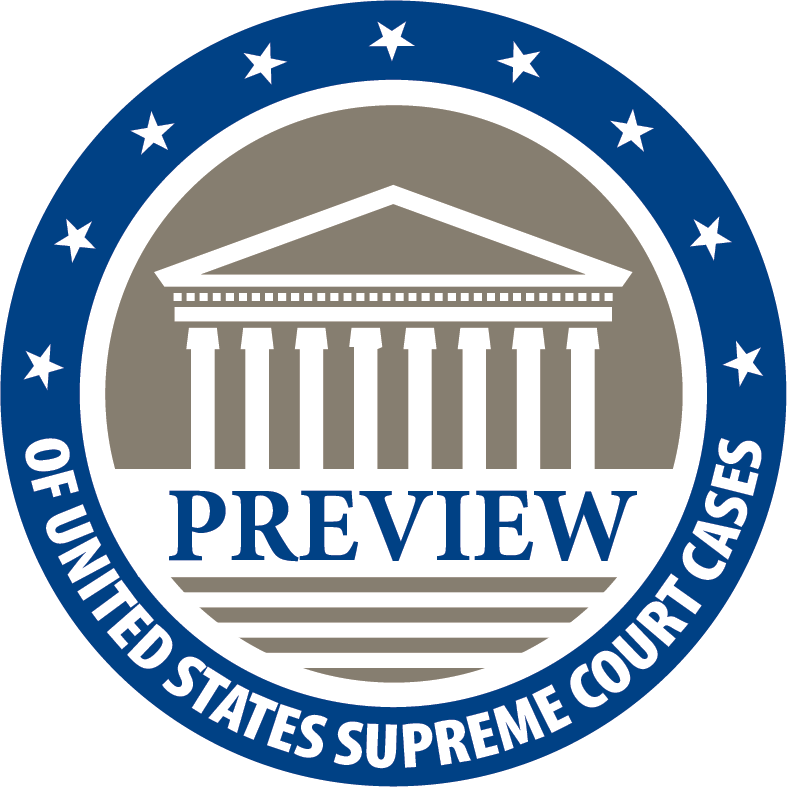The Supreme Court’s 2023-2024 term has been filled with highly controversial decisions on a range of contentious topics, from abortion to gun control to presidential immunity. In this post, we take a look at six of these decisions, some of which reversed decades of precedent.
For more Supreme Court round-ups, check out our posts from previous years:
- A Supreme Shake-Up: A Round-Up of 6 Recent Major Supreme Court Rulings (2021-2022 Term)
- Major Supreme Court Case Decisions in the 2022-2023 Term
Featured Resource: Preview of United States Supreme Court Cases
The American Bar Association’s Preview of United States Supreme Court Cases is a publication and HeinOnline database that provides comprehensive expert analysis of all cases granted certiorari before the Supreme Court prior to the arguments. A subscription to this online publication includes eight issues annually. Issues 1-7 summarize the Court’s seven argument sessions from October through April while the eighth issue reviews the entire term using statistics, charts, essays, and case summaries.

1. Trump v. United States
Issue: Presidential immunity
Date Decided: July 1, 2024
Ruling: 6-3 along ideological lines
The Supreme Court’s latest decision is perhaps one of its most impactful when it comes to the upcoming presidential election. The Court’s conservative majority ruled that the president has absolute immunity from criminal prosecution when it comes to any official acts conducted within constitutional presidential authority, as well as at least some immunity from prosecution over all “official acts.” Notably, the Court did not rule upon whether Trump was immune from prosecution in all acts cited within his indictment.
Key Quotes:
“The President is not above the law. But under our system of separated powers, the President may not be prosecuted for exercising his core constitutional powers, and he is entitled to at least presumptive immunity from prosecution for his official acts. That immunity applies equally to all occupants of the Oval Office.”
“The majority of my colleagues seems to have put their trust in our Court’s ability to prevent Presidents from becoming Kings through case-by-case application of the indeterminate standards of their new Presidential accountability paradigm. I fear that they are wrong. But, for all our sakes, I hope that they are right.”
2. Loper Bright Enterprises v. Raimondo and Relentless, Inc. v. Department of Commerce
Issue: Administrative law
Date Decided: June 28, 2024
Ruling: 6-3 along ideological lines
In this case, the Court reversed four decades of precedent by reversing the landmark 1984 decision Chevron v. Natural Resources Defense Council. That decision had established the Chevron doctrine, by which courts had a two-step process in deciding a dispute: 1) Has Congress directly addressed the issue in question? 2) If not, then the court must uphold the respecting agency’s interpretation of the statute, as long as said interpretation is reasonable.
This had become one of the most important decisions in federal administrative law, as evidenced by the fact it has been cited more than 18,000 times. With the Supreme Court’s recent ruling, it will be the courts, rather than agency experts, who determine what laws mean. Federal agencies will likely face many legal challenges in passing future regulations.
Key Quotes:
“Chevron is overruled. Courts must exercise their independent judgment in deciding whether an agency has acted within its statutory authority.”
In one fell swoop, the majority today gives itself exclusive power over every open issue — no matter how expertise-driven or policy-laden — involving the meaning of regulatory law. As if it did not have enough on its plate, the majority turns itself into the country’s administrative czar.”
3. Grants Pass v. Johnson
Issue: Homelessness
Date Decided: June 28, 2024
Ruling: 6-3 along ideological lines
In this decision, the Supreme Court decided that city law enforcement can arrest people who are homeless and sleeping in outdoor encampments and who don’t have another place to go, without violating the “cruel and unusual punishment” clause of the Eighth Amendment.
Key Quotes:
“The Constitution’s Eighth Amendment serves many important functions, but it does not authorize federal judges to wrest those rights and responsibilities from the American people and in their place dictate this Nation’s homelessness policy.”
“The majority focuses almost exclusively on the needs of local governments and leaves the most vulnerable in our society with an impossible choice: Either stay awake or be arrested.”
4. United States v. Rahimi
Issue: Gun rights
Date Decided: June 17, 2024
Ruling: 8-1 with Justice Clarence Thomas dissenting
In this case, the Supreme Court ruled to uphold a federal law prohibiting anyone who is subject to a domestic violence restraining order from possessing a firearm, stating that this law is not unconstitutional and does not violate the Second Amendment. Lower courts had applied the Court’s decision in New York State Rifle & Pistol Association v. Bruen, in which it was decided that gun restrictions should be upheld only when there is a historical tradition of such regulation, to rule that the domestic violence law was unconstitutional. However, the Court clarified that firearm regulation laws need to be “relevantly similar” to laws in historical tradition, and Roberts cited early American laws that have prevented potentially dangerous individuals from misusing guns.
Key Quotes:
“For example, if laws at the founding regulated firearm use to address particular problems, that will be a strong indicator that contemporary laws imposing similar restrictions for similar reasons fall within a permissible category of regulations.”
“[The question] is whether the Government can strip the Second Amendment right of anyone subject to a protective order — even if he has never been accused or convicted of a crime. It cannot.”
5. Food and Drug Administration v. Alliance for Hippocratic Medicine
Issue: Abortion
Date Decided: June 13, 2024
Ruling: 9-0 unanimous decision
A group of anti-abortion doctors suing the Food and Drug Administration for allowing access to mifepristone, one of two medications used in medication abortions, were denied the right to sue in a unanimous Supreme Court decision. Regardless of the differing opinions on abortion displayed by the Court justices, all nine agreed that the doctors did not have legal standing to sue because they were not personally harmed by the actions of the FDA. The Court did not take a stance on whether or not mifepristone should be accessible.
Key Quotes:
“The plaintiffs have sincere legal, moral, ideological, and policy objections to elective abortion and to FDA’s relaxed regulation of mifepristone. But under Article III of the Constitution, those kinds of objections alone do not establish a justiciable case or controversy in federal court.”
6. Trump v. Anderson
Issue: Insurrection clause
Date Decided: March 4, 2024
Ruling: 9-0, per curiam, with Justices Barrett, Sotomayor, Jackson, and Kagan concurring
The Supreme Court ruled unanimously that states, namely, Colorado, couldn’t leave Trump off of the presidential ballot because of his role in the events in the January 6, 2021 Capitol insurrection. The Court argued that only Congress, not states, can enforce the cited insurrection clause, which, under Section 3 of the 14th Amendment, states that no one who participates in an insurrection is eligible to run for government office (although, presidential office is peculiarly not mentioned in the ban). However, the majority proceeded to lay out more specific details as to the only avenues that Section 3 can be enforced in the federal government, leading Barrett, Sotomayor, Kagan and Jackson to argue that the reasoning as to how and who can enforce Section 3 should not be included. However, Barrett disagreed with the tone of Kagan’s concurring opinion.
Key Quotes:
“The Court has settled a politically charged issue in the volatile season of a Presidential election. Particularly in this circumstance, writings on the Court should turn the national temperature down, not up. For present purposes, our differences are far less important than our unanimity: All nine Justices agree on the outcome of this case. That is the message Americans should take home.”
“Today, the majority goes beyond the necessities of this case to limit how Section 3 can bar an oathbreaking insurrectionist from becoming President. Although we agree that Colorado cannot enforce Section 3, we protest the majority’s effort to use this case to define the limits of federal enforcement of that provision
What’s Next?
The Supreme Court is currently in recess until they begin hearing arguments again in late September. However, President Biden has recently released a plan for Supreme Court reform, including introducing term limits and creating a code of ethics for Supreme Court justices to help minimize what he has referred to as “extremism” on the bench. However, how far this plan will go remains to be determined with a divided Congress and a presidential election in a couple of months.



